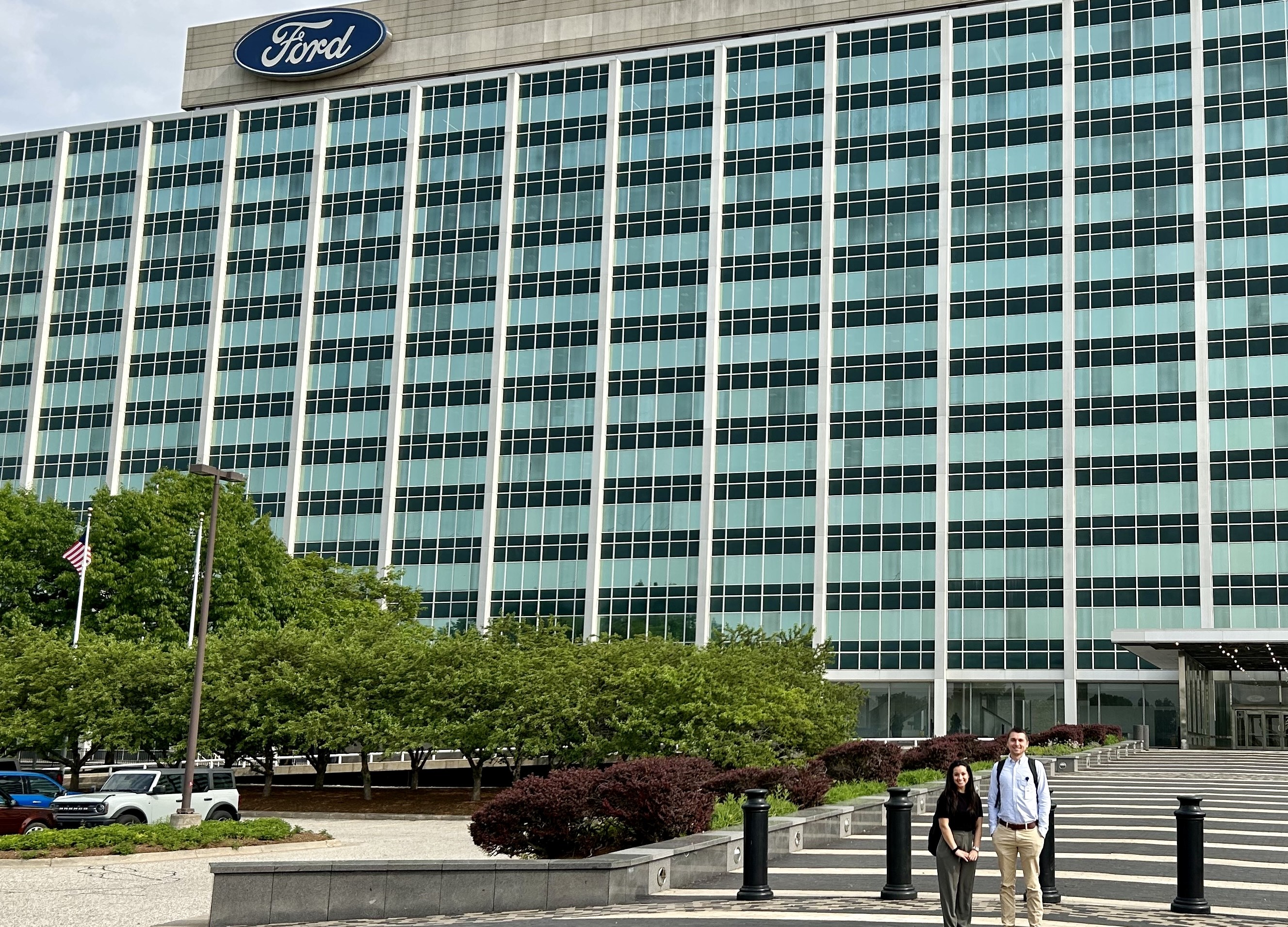Grad Student Internship Spotlight: Connor Eichenauer
October 13, 2023 - Shelly DeJong
 Connor Eichenauer is a fifth year PhD student specializing in Organizational Psychology. In 2023, Connor had the opportunity to intern at Ford Motor Company as a People Analytics intern. He recently shared about his experience and how it aligns with his research interests.
Connor Eichenauer is a fifth year PhD student specializing in Organizational Psychology. In 2023, Connor had the opportunity to intern at Ford Motor Company as a People Analytics intern. He recently shared about his experience and how it aligns with his research interests.
Connor, what are your research interests?
My primary interests are related to personnel assessment and selection. Specifically, I am interested in 1) how to reduce biases to make selection processes more fair for underrepresented groups, and 2) maximizing the predictive validity of selection processes in organizational settings by reducing science-practice gaps in implementation.
What do you like about Organizational Psychology?
I’ve always been fascinated by psychology. The workplace context interested me because we spend so much of our lives working, and this time can be a source of fulfillment yet also immense frustration. Organizational Psychology allows me to study psychological phenomena in workplace settings while also providing the opportunity to make a difference in practical settings through a career as an applied practitioner. Paraphrasing I-O Psychologist Adam Grant, “our job is making work suck less.”
 You interned with Ford Motor Company, can you tell us about your role as a People Analytics intern?
You interned with Ford Motor Company, can you tell us about your role as a People Analytics intern?
Within the larger People Analytics team, I worked with the Employee Listening subgroup, which manages several employee surveys across the employee lifecycle. My primary projects involved analyzing quantitative and qualitative employee sentiment data from hourly employee and salaried employee pulse surveys, including using innovative techniques such as natural language processing and heartbeat analysis. I also led the process of updating the employee exit survey to better capture why employees decide to leave Ford and how to predict turnover before it happens.
Can you explain more about the innovative techniques that you used?
Natural language processing is a type of artificial intelligence used to derive meaning from qualitative data. In my internship, I used NLP tools to help analyze open-ended survey comments (e.g., to categorize employee survey comments into themes). While comments could be human coded, NLP is useful when there are large amounts of qualitative data, such as 10,000 employee comments.
Heartbeat analysis is a within-person method of analyzing quantitative survey data that counts the number of times an employee’s responses deviate above or below their typical response range. Taking this approach recognizes that identical responses to an item from a very positive responder and a very negative responder have different meaning. I used heartbeat analysis to provide a second, alternative perspective to analyzing survey data.
Why did you want to intern there?
I couldn’t pass up the opportunity to intern at an iconic American company like Ford. This opportunity also allowed me to experience what it’s like to work within a People Analytics function.
How did your education in Org Psych help you in this role?
Every day I used technical skills related to data analysis, many of which were learned from graduate coursework during my time at MSU. It was also helpful to have knowledge of organizational psychology theories related to topics such as employee health/well-being, diversity and inclusion, leadership, motivation, and work attitudes; applying theory is useful in knowing what to ask employees, understanding results, and developing initiatives to enact change.
What did you like most about your internship?
I’m someone who likes variety in my work, so I enjoyed the fact that there was significant variety in topics underlying the work I conducted. Employee surveys often ask about topics such as learning and training opportunities, occupational health, diversity and inclusion experiences, perceptions of managers and leadership, and work attitudes such as engagement, commitment, and turnover intentions. Results from data relating to each of these topics led to different types of initiatives and working with different teams and people across the organization to implement.
Was this similar work to what you’d like to do in the future?
This was a valuable opportunity for me because it allowed me to experience people analytics work for this first time. Previously, I had nearly four years of internship experience with Honeywell’s Talent Assessments team working on projects related to employee selection. I really enjoy selection work but hadn’t experienced other areas of work in Org Psych such as people analytics; this desire to branch out led me to interning with Ford. I greatly enjoyed both of my internship experiences, so now I have a difficult decision to make in terms of which career path to pursue!

